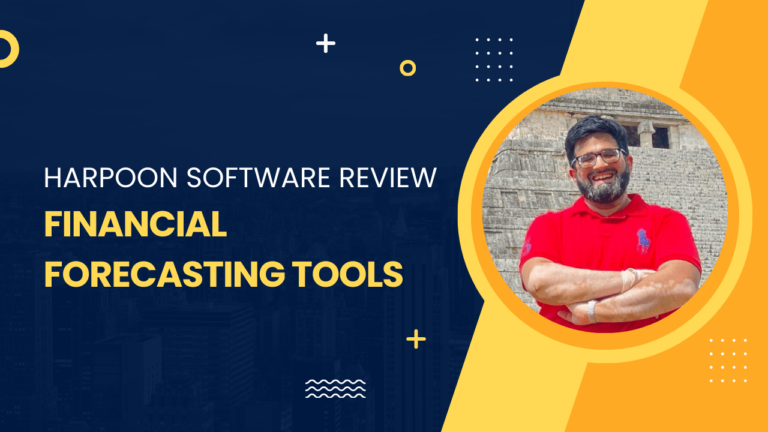Best Accounting Software: Complete Guide [Updated 2024]
Finding the best Best Accounting Software is usually simple if you know exactly what to look for. In this guide I will go through various business types as well as specific needs that can be catered to by using such accounting softwares. The best accounting softwares streamline and automate financial transactions, providing comprehensive tools for tracking and reporting business finances. They serve as the foundation for efficient financial management in both small and large enterprises.
Major Accounting Software Providers
Leading providers in the accounting software market include:
- QuickBooks and Intuit QuickBooks: Renowned for their comprehensive offerings catering to a range of business sizes.
- Xero: Offers robust cloud-based accounting with a focus on mobile access and integration.
- FreshBooks: Known for exceptional invoicing and time tracking features.
- Zoho Books: Part of the Zoho suite, offering strong automation and reporting tools.
- AccountEdge Pro: A desktop-based software known for strong inventory and full-featured accounting capabilities for Mac and Windows users.
- Sage Business Cloud Accounting: Provides extensive accounting solutions, including cloud-based options, for small to mid-sized businesses.
Key Features of Accounting Software
Accounting software encompasses a variety of key features that facilitate effective financial management. These include:
- General ledger: The central feature for recording all financial transactions.
- Invoicing: Tools to create and manage bills and invoices for customers.
- Payroll processing: Functions to handle employee payment, tax withholding, and reporting.
- Reporting features: Real-time financial reporting for assessing financial health.
- Inventory management: Tracking stock levels, orders, sales, and deliveries.
- Automation: Capabilities such as automatic bank feeds, recurring invoices, and payment reminders to increase efficiency.
Benefits of Using Accounting Software
The benefits of utilizing accounting software are substantial:
- Efficiency: Automates routine tasks, saving time and reducing errors.
- Scalability: Adapts to a growing business’s needs without a significant increase in costs or complexity.
- Financial control: Provides a real-time view of a company’s financial status, increasing financial health visibility.
- Accessibility: Many cloud-based accounting software solutions offer mobile and remote access to financial data.
Types of Accounting Software
There are several types of accounting software catering to the various needs of businesses:
- Free accounting software, like Wave Accounting, offers basic functionalities without a subscription fee.
- Small-business accounting software, such as QuickBooks Online or Sage Business Cloud Accounting, designed for the needs of smaller enterprises.
- Enterprise-level solutions, like NetSuite, offer a broader feature set with deep customization options for larger organizations.
Choosing the Right Accounting Software
Selecting the appropriate software entails evaluating factors like:
- Functionality: Ensuring it has the necessary feature set to meet the business’s requirements.
- Ease of use: A user-friendly interface that non-accountants can navigate with minimal training.
- Scalability: It must grow with the business, accommodating more users, transactions, and financial complexity.
- Subscription: Understanding the cost and what is included in it, be it support, updates, or cloud access.
Best Accounting Software for Nonprofits
Selecting the right accounting software is crucial for nonprofits to manage their finances efficiently. The best software solutions offer specialized features such as donation tracking, fund accounting, and financial reporting tailored to the unique needs of nonprofit organizations.
QuickBooks Enterprise Nonprofit stands out with its robust feature set suitable for a wide range of nonprofit sizes. It excels in financial reporting and integrates smoothly with various other systems. For smaller organizations, ACCOUNTS from Software4Nonprofits is designed to provide an affordable yet comprehensive accounting solution. On the other side, large organizations might find Financial Edge by Blackbaud more aligned with their complex financial needs due to its advanced analytics and reporting features.
Worthy of mention, Wave Financial offers a great free option for nonprofits with basic needs, providing integrated credit card processing and access to bookkeeping staff.
Below is a table summarizing the top accounting software options for nonprofits, along with their price and review ratings:
| Software | Price (as of 2023) | Review Rating |
|---|---|---|
| QuickBooks Enterprise | Custom Pricing | 7.7 (Editor’s) |
| ACCOUNTS | Affordable Pricing | Not Specified |
| Financial Edge by Blackbaud | Custom Pricing | Not Specified |
| Wave Financial | Free | Not Specified |
Note: Prices and ratings are subject to change. It is recommended to request the latest information and demo from the providers.
Each of these applications has features built to cater to the varying sizes and needs of nonprofit organizations. They facilitate reporting, donation tracking, and financial management, which are integral for maintaining transparency and regulatory compliance. Nonprofits must assess these options to determine which software aligns best with their operational complexity and budget requirements.
Best Accounting Software for Self-Employed
When self-employed professionals seek accounting software, they prioritize ease of use, functionality, and price. FreshBooks is often recognized as a top choice, offering features like automatic recurring invoices, demonstrating its commitment to efficiency and user experience. QuickBooks offers tailored solutions with QuickBooks Online and QuickBooks Self-Employed, catering to varied business needs.
Below is a table showcasing some of the most recommended software along with their starting price and user review ratings:
| Software | Starting Price /mo | Review Rating |
|---|---|---|
| FreshBooks | $15.00 | 4.0 |
| QuickBooks Online | Varies | N/A |
| QuickBooks Self-Employed | Varies | N/A |
| Xero | Varies | N/A |
FreshBooks stands out with a user-friendly interface and a 4.0 review rating, starting at $15.00 per month. QuickBooks products are renowned for their comprehensive features and scalability, with specific versions designed for self-employed individuals. Xero also offers advanced bill pay tools and project-based custom tracking, indicative of its suitability for freelancers who manage various clients and projects.
It is vital for users to consider the specific needs of their business when selecting the appropriate software. The right choice can streamline invoicing, expense tracking, and financial reporting, making the day-to-day operations of a self-employed individual significantly more manageable.
Best Accounting Software for Law Firms
Selecting the best accounting software for law firms can streamline financial management and ensure compliance with legal industry standards. Firm size, integration capabilities, and specific accounting needs are critical factors when choosing suitable software.
Notable Software Options:
- PCLaw: Presents itself as an all-encompassing solution, incorporating both accounting features and practice management tools tailored for legal professionals.
- QuickBooks Online: Highly adaptable for small firms, especially when merged with LeanLaw for enhanced legal functionality.
- CosmoLex: Offers a cloud-based, all-in-one solution that combines accounting with practice management, appealing to firms seeking a comprehensive ecosystem.
- Xero: Recognized for its capability to support unlimited users, making it a viable option for expanding practices, especially when combined with TimeSolv for legal time tracking.
Comparison Table:
| Software | Price Per Month | Review Rating |
|---|---|---|
| PCLaw | Varies by Tier | 4.5/5 |
| QuickBooks Online + LeanLaw | Varies by Tier | 4.6/5 |
| CosmoLex | Starts at $79/user | 4.7/5 |
| Xero | Starts at $30/user | 5.0/5 |
Prices are a guide and may include promotional discounts or vary depending on additional features.
Each option has distinct merits for different types of law practices. PCLaw is an overall versatile tool, whereas QuickBooks Online, when integrated with LeanLaw, offers refined legal accounting procedures. CosmoLex excels in offering a specialized, legal-centric platform, and Xero stands out for firms with numerous users and scalable accounting needs. Law firms should weigh their specific requirements against these leading software options to ensure a choice that complements their operational workflow.
Best Accounting Software for Cleaning Business
Selecting the ideal accounting software for a cleaning business hinges on various factors including cost, features, and user feedback. Here are details on several top-tier accounting solutions specifically tailored for cleaning services.
| Software | Price Range | Review Rating |
|---|---|---|
| Square Appointments | Free to Premium levels | 4.5/5 |
| Connecteam | Free to Premium levels | 4.7/5 |
| FreshBooks | Custom pricing | 4.5/5 |
| QuickBooks | Custom pricing | 4.3/5 |
Square Appointments offers a balanced suite for small to mid-sized cleaning businesses seeking a one-stop shop without a long-term commitment. Users can benefit from a free plan which includes robust features.
Connecteam stands out with its scheduling proficiency and communication tools, further augmented by automation capabilities. Remarkably, it presents a 100% free plan for up to 10 users, making it accessible for those on a tight budget.
FreshBooks provides comprehensive cleaning business software utilizing industry-standard double-entry accounting, to ensure meticulous financial tracking. Its platform promises ease of access to information through advanced reporting features.
QuickBooks caters to growing cleaning companies that require extensive team management, expense tracking, invoice management, and more. It supports businesses in keeping their operations orderly and efficient.
Each of these platforms brings a unique set of tools designed to streamline the financial aspects of managing a cleaning business, aiding in informed decision-making and facilitating business growth.
Best Accounting Software for Restaurants
When selecting the best accounting software for restaurants, restaurateurs should consider various features such as ease of use, POS integrations, and comprehensive reporting capabilities. Notably, software built on robust platforms and offering a complete suite of management tools tailored to the unique needs of the restaurant industry stands out.
Restaurant365 is a significant contender, with its foundation on the Microsoft Dynamics platform. It delivers not just accounting, but a full range of operations modules, including integrations with point of sale systems, banks, payroll services, and vendors.
Likewise, QuickBooks Online offers a tailored solution for restaurants. It’s recognized for its affordability and rich feature set, which allows restaurant owners to manage their finances effectively.
For comparative purposes, below is a table highlighting top accounting software choices for restaurants, accompanied by their starting price and review ratings.
| Software | Starting Price | Review Rating |
|---|---|---|
| Restaurant365 | Custom Pricing | N/A |
| QuickBooks Online | Varies | 5.0 (NerdWallet) |
| Xero | Varies | 5.0 (NerdWallet) |
It is important for businesses to request the latest pricing and demo options from the providers to ensure accurate budgeting and to understand the full capability of the software. Reliable review platforms such as NerdWallet can offer insights into user satisfaction and performance in real-world scenarios.
This focus on core needs and user feedback can steer restaurant owners toward the best software fit for their establishment, leading to more efficient and successful management of their financial operations.
Best Accounting Software for Bookkeepers
Bookkeepers require reliable software that can handle a wide range of financial tasks. The top accounting software for bookkeepers typically offer comprehensive features that streamline bookkeeping processes, improve accuracy, and provide actionable financial insights.
Xero and Sage Intacct are frequently mentioned among the best accounting software options available. Xero offers a cloud-based platform that includes integration with numerous third-party services, adding to its flexibility. Sage Intacct is known for improving financial visibility and can reduce the time spent on financial close processes.
The table below provides a comparison of the top bookkeeping software based on price and review ratings:
| Software | Price Range | Review Rating |
|---|---|---|
| Xero | Varies by plan | 5.0/5 |
| Sage Intacct | Custom pricing | Not listed |
| QuickBooks | Starting at $25/month | 4.5/5 |
| FreshBooks | Starting at $15/month | 4.5/5 |
| Wave | Free (with paid add-ons) | 4.0/5 |
Bookkeepers should consider these factors among others, such as customer support, ease of use, and specific features that align with the needs of their clients or company. When selecting the best accounting software, it’s essential to opt for solutions that enhance efficiency and keep up with changing financial regulations.
Most of these platforms offer tiered pricing plans to accommodate different sizes of businesses and their specific needs. Also, many users trust and rely on the review ratings from other seasoned professionals when making their choice, so these can be a helpful guide for new users. It is advisable for bookkeepers to conduct a thorough analysis of each option, considering both the cost and the capabilities of the software to ensure the best fit for their requirements.
Best Accounting Software for Real Estate
Selecting the right accounting software is crucial for real estate professionals as it ensures accurate financial tracking and compliance. The top contenders in this specialized field often provide comprehensive solutions tailored for managing real estate transactions, expenses, and even payroll.
Forbes Advisor lists an array of software highly regarded in the industry. SkySlope, for instance, stands out for its all-in-one transaction management capabilities. Here’s a glance at some of the preferred options along with their pricing and ratings:
| Software | Starting Price | Review Rating |
|---|---|---|
| SkySlope | Contact Vendor | 4.1/5 |
| FreshBooks | $15/month | 4.5/5 |
| QuickBooks Online | $25/month | 4.3/5 |
| Xero | $11/month | 4.4/5 |
| Wave | Free | 4.3/5 |
FreshBooks is notable for its ease of use and scalability, suitable for both small and large real estate entities. QuickBooks Online offers a robust feature set that can cater to the nuanced needs of the industry, while Xero provides a great user interface and integration capabilities. For a no-cost alternative, Wave offers basic accounting tools which can be ideal for independent landlords or new agents.
When evaluating software, realtors should consider transaction management features, reporting capabilities, and the ease of integration with other tools. It’s important to weigh these factors against the software’s pricing to make an informed decision that matches their business model and financial practices.
Best Accounting Software for Contractors
Choosing the right accounting software is crucial for contractors to manage their finances effectively. The market offers several options tailored to meet the specific needs of construction-related accounting.
Xero is a cloud-based financial management tool that integrates with CRM, payroll, and POS systems, offering multi-entity financial visibility. It is designed to adapt to the complexities of construction financial management.
QuickBooks Enterprise is suited for large, well-established construction businesses. It scores high on reliability and is backed by a comprehensive support system, making it a favored choice for contractors looking for an industry-proven solution.
Vista by Viewpoint boasts a fully integrated construction ERP software, emphasizing strong accounting tools suitable for managing construction-specific payroll, general ledger, accounts payable, and accounts receivable.
Ventus by Vertical Market Software caters to the specialty contractor with over 16 core applications, assisting businesses in managing construction, service, distribution, and accounting needs.
Here’s an overview of the top accounting software for contractors:
| Software | Price Range | Review Rating |
|---|---|---|
| Xero | Custom | Not Available |
| QuickBooks Enterprise | Custom | 4.0/5.0 |
| Vista by Viewpoint | Custom | Not Available |
| Ventus | Custom | Not Available |
Each software comes with its own set of features and pricing models, and often the providers offer custom pricing based on the individual needs of a contracting business. Contractors are advised to request quotes and demos to find the best fit for their organization. Quality and functionality should be the key deciding factors in selecting accounting software.
Best Accounting Software for Construction
When selecting construction accounting software, businesses should look for solutions that provide detailed financial tracking and reporting tailored to the construction industry’s unique needs. Construction accounting software should effectively manage job costing, payroll, and project management.
Vista by Viewpoint stands out for its comprehensive suite of integrated Enterprise Resource Planning (ERP) tools, including union and certified payroll reports, general ledger, and accounts payable and receivable. It is widely recommended for its full integration and construction-specific features.
Another noteworthy contender is Acumatica Construction Edition, which offers a hub for centralizing financial data. Its role-based dashboards are particularly useful, granting customized access to financial insights across the firm, benefiting everyone from supervisors to clients.
Forbes also highlights other top construction accounting software, though specifics regarding their price and reviews are best found via their respective websites.
Below is a comparative table of two highlighted software options:
| Software | Pricing | Review Rating |
|---|---|---|
| Vista by Viewpoint | Custom Quote | 4.5/5 |
| Acumatica Construction | Custom Quote | 4.4/5 |
Business owners should also consider Wave, which provides free money management tools suitable for small businesses and freelancers. Wave’s capabilities include invoicing with accounting functionalities, assisting owners in effective payment tracking.
It’s essential to choose a solution that aligns with your business size, needs, and goals. Each software solution offers different integration levels, ease of use, and customized features. Prospective users should take advantage of free trials or demos when available to find the best fit for their construction business.
Best Accounting Software for Landlords
Selecting the best accounting software for landlords involves considering features such as ease of use, financial reporting, and the ability to manage multiple properties and tenants. It’s essential for the software to be tailored to the complexities of rental property management. Here are some of the top choices for landlord accounting software:
| Software | Price Range | Review Rating |
|---|---|---|
| Zoho Books | Plans vary | 4.5/5 |
| AppFolio | Quote-based | 4.6/5 |
| Rentec Direct | $35 to $40/user/month | 4.3/5 |
| Buildium | $50 to $460/month | 4.5/5 |
| Avail | Free plan available | 4.4/5 |
Zoho Books is appreciated for its adaptability to landlord requirements, providing cloud-based accounting that integrates with a host of other services.
AppFolio offers a comprehensive solution that is often favored for its all-in-one property management capabilities. It’s especially well-suited for managing large numbers of units and facilitating multiple users.
Rentec Direct impresses with its niche focus on landlording and value-added features like property tax preparation tools.
Buildium is designed for those with more extensive property portfolios, offering scalable services that encompass budget tracking to rent collection.
Avail strikes a balance as an efficient property management platform, providing basic accounting alongside complementary landlord services.
For landlords, the importance of choosing software with a reliable review rating cannot be overstated. It ensures that they invest in a solution vetted by peers. Prices can range based on the number of units managed and the depth of features required. Landlords should seek solutions that offer transparency about costs and provide scalable options as their portfolios grow.
Best Accounting Software for Freelancers
Choosing the right accounting software is crucial for freelancers who need to manage their finances efficiently. The market offers several top-tier options, each with its own set of features and pricing models tailored to meet the diverse needs of the self-employed.
Wave is a strong choice for freelancers on a budget, offering a free plan that includes basic accounting capabilities. Wave generates revenue through paid services such as payment processing and payroll services, allowing users to access core features without monthly fees.
Another excellent option is Zoho Books, known for its comprehensive and automated services. Freelancers earning under $50,000 annually can benefit from Zoho’s free plan. Zoho Books also provides affordable paid plans that present a robust set of features and integration options.
QuickBooks Self-Employed stands out for tax tracking. Aimed at freelancers requiring advanced features, QuickBooks delivers a range of accounting tools to simplify financial management and is particularly beneficial when preparing for tax season.
Freelancers looking for a tailored solution may consider Harpoon, which offers a unique approach to accounting and financial planning for self-employed individuals. It provides tools for not only tracking funds but also for establishing financial goals.
The popular FreshBooks offers user-friendly software with a focus on ensuring freelancers are paid accurately and promptly. FreshBooks streamlines invoicing and payment tracking, with additional features accessible through its paid plans.
Below is a table with a general overview of pricing and user satisfaction for these software options:
| Software | Pricing (as of 2023) | Review Rating |
|---|---|---|
| Wave | Free* | 4.3/5 |
| Zoho Books | Free/$30/month for higher tiers | 4.4/5 |
| QuickBooks | Self-Employed $15/month | 4.5/5 |
| Harpoon | Varies (Custom pricing for additional features) | 4.6/5 |
| FreshBooks | From $15/month | 4.5/5 |
*Rates are for base plans, and additional features may incur extra costs. Review ratings are aggregates from various users and may change over time.
Core Accounting Functions
In the landscape of accounting software, core functionalities serve as the foundation for efficient financial management. These functions are essential for tracking and managing financial data, ensuring accuracy in financial records, and enabling strategic financial planning.
Expense Tracking and Management
A critical component is expense tracking and management which ensures that all financial outflows are meticulously recorded and categorized. This facilitates cost-saving measures and enhances expense management practices. Systems with sophisticated expense tracking offer analytics to pinpoint unnecessary expenditures.
Accounts Payable and Receivable
Handling accounts payable and accounts receivable streamlines invoice processing and payment collections. Accurate management of these accounts ensures a steady cash flow and reduces the risk of financial discrepancies by keeping precise records of what is owed by and to the business.
Managing Sales and Revenue
Sales and revenue management is fundamental for profitability. Accounting software should effectively track all sales data, including sales tax, and integrate seamlessly with other financial functions to provide a comprehensive view of the company’s revenue streams.
Bookkeeping and General Ledger
Efficient bookkeeping and general ledger maintenance is the cornerstone of all accounting activities. A detailed and accurate financial record in the general ledger is imperative for assessing the financial health of a business and forms the basis for all financial reporting.
Financial Reporting and Analysis
Financial reporting and analysis offer insights into business performance with an array of reports such as profit and loss statements, balance sheets, and cash flow statements. Analytical tools within accounting software help interpret financial data, turning numbers into actionable business metrics.
Budgeting and Forecasting
Budgeting and forecasting tools within accounting software aid in financial planning, allowing businesses to prepare for future financial needs and assessing potential scenarios. A clear and organized budget supports strategic decisions and financial stability.
Payroll Management
Payroll management is a complex but essential function that benefits greatly from dedicated software. Comprehensive payroll systems deal with employee compensation, tax deductions, and related financial obligations while also maintaining necessary records for reporting purposes.
Invoicing and Billing
In the modern business landscape, efficient invoicing and billing systems are crucial for maintaining cash flow and client relations. The right software can streamline payment collection and provide a user-friendly interface for both businesses and customers.
Streamlining Invoicing Processes
Effective invoicing software allows businesses to generate and send invoices swiftly, reducing the time invested in creating individual invoices. Features like batch invoicing and recurring invoice schedules maximize productivity by automating routine tasks.
Billing and Payment Processing
A robust billing system supports various payment methods, ensuring a seamless transaction for clients. Sophisticated platforms include payment processing capabilities, sometimes with real-time processing and support for multiple currencies, which simplifies the reconciliation of accounts.
Accounts Management for Clients and Suppliers
Integrated client portals offer clients a comprehensive view of their transactions and invoices. Similarly, supplier accounts are meticulously tracked, creating a centralized database that includes purchase orders, bills, and payments, which can often be accessed through an API.
Automating Payment Reminders and Receipts
Automation of payment reminders ensures timely collections, while systems that handle receipt scanning facilitate the digitization and organization of financial documentation. This automation can reduce errors and improve efficiency in financial operations.
Managing Estimates and Quotes
Issuing accurate estimates and quotes is streamlined, with templates and past data ensuring consistency and professionalism. When estimates are approved, they can be converted to invoices with a single click, embodying a customizable approach to client engagements.
Customization and Branding
Customization options let businesses tailor invoices with their branding elements, fostering brand recognition and trust. This may include logos, color schemes, and personalized messages, which enhances the overall presentation.
Integrations with Other Financial Tools
Top invoicing and billing software offers extensive integrations with other financial tools like accounting software, CRMs, and ERP systems. This connectivity ensures smooth data flow and a comprehensive financial ecosystem, allowing for better decision-making and reporting.
Advanced Features and Considerations
In selecting the best accounting software, one must look beyond basic functions to assess advanced features that can elevate the efficiency of financial management. These considerations often include project and time tracking, robust inventory management, and extensive reporting capabilities. Proper access controls and integration options are also crucial for growing businesses.
Project and Time Tracking
Modern accounting software offers sophisticated project and time tracking tools, allowing businesses to monitor hours worked per project and analyze labor costs in detail. This functionality is vital for businesses that bill clients based on time spent or need to track employee productivity and project profitability.
Inventory Management Advanced Options
For companies handling physical goods, inventory management tools are indispensable. Advanced options include real-time tracking, automated reordering, and detailed reports on stock levels, turnover rates, and total inventory valuation, enabling businesses to maintain optimal inventory levels and avoid stockouts or excessive overstock.
Custom Report Generation
The ability to generate custom reports is a significant advantage. Users can create reports tailored to specific needs, leveraging powerful filtering and sorting to glean insights from their financial data. These reporting features often include graphical presentations that make complex data more digestible.
Access Controls and User Permissions
Access controls and user permissions are critical for businesses that wish to maintain tight security over their financial information. Software that allows different access levels ensures that employees can only view or modify the data relevant to their role, thereby safeguarding sensitive information from unnecessary exposure.
Mobile Application and Remote Access
A mobile app and remote access capabilities allow users to manage financial transactions on the go. This flexibility is vital for decision-makers who need to approve payments or access financial reports away from the office, ensuring they stay informed in real-time.
Customer Relationship Management (CRM)
Integrating Customer Relationship Management (CRM) systems with accounting software enables businesses to link financial data with customer interactions. This integration provides a fuller picture of a customer’s lifetime value and transaction history, allowing for refined customer-centric strategies.
Layering and API Integration
Seamless API integration extends the functionality of accounting software by connecting with other business applications such as payment processors, CRM, or e-commerce platforms. Integration through APIs ensures efficient data transfer, simplifies workflow, and often allows for additional customization, enhancing overall business operations.
Software Evaluation
Evaluating the best accounting software involves a systematic approach to understanding each program’s features, limitations, and overall value. Potential users should consider trial periods, user feedback, cost, customer support, and tax-related capabilities.
Trial Periods and Demos
Trial periods and demos offer firsthand experience with accounting software, allowing users to assess the ease of use and functionality. Many top picks, such as Xero and Sage Intacct, provide trial periods which users should fully utilize to test the software’s features against their accounting needs.
Reading Reviews and Comparisons
Reading reviews and comparisons is crucial in identifying the strengths and weaknesses of accounting software. Expert reviews might highlight a service’s ease of use or robust features, while user testimonials can provide insights into real-world application. Sites like TechRepublic and Capterra are reputable sources for such comparative analyses.
Assessing Costs and Pricing Plans
Costs and pricing plans vary widely among accounting software options. While some services like Wave offer free accounting solutions for basic needs, others may have tiered pricing structures based on features and the number of users. Users should carefully evaluate the long-term financial implications of any subscription plan.
Evaluating Customer Support Services
Strong customer support services are vital, as they ensure continued assistance post-purchase. Users should consider the availability of support channels such as live chat, phone assistance, and online resources. Adequate support can greatly enhance the user experience, especially for those who may be less experienced with accounting practices.
Preparation for Tax Season
Accounting software should streamline preparation for tax season, making it as efficient as possible. Key features to look for include automatic tax calculations, report generation, and the ability to easily share data with tax professionals. Robust software will keep users organized throughout the year, simplifying the tax filing process when the time comes.



![How to Create a Custom Menu Link in WordPress: Quick Guide [Updated] 3 How to Create a Custom Menu Link in WordPress: Quick Guide [Updated]](https://everydayabdul.com/wp-content/uploads/2023/12/how-to-create-a-custom-menu-link-in-wordpress-min-768x432.png)


